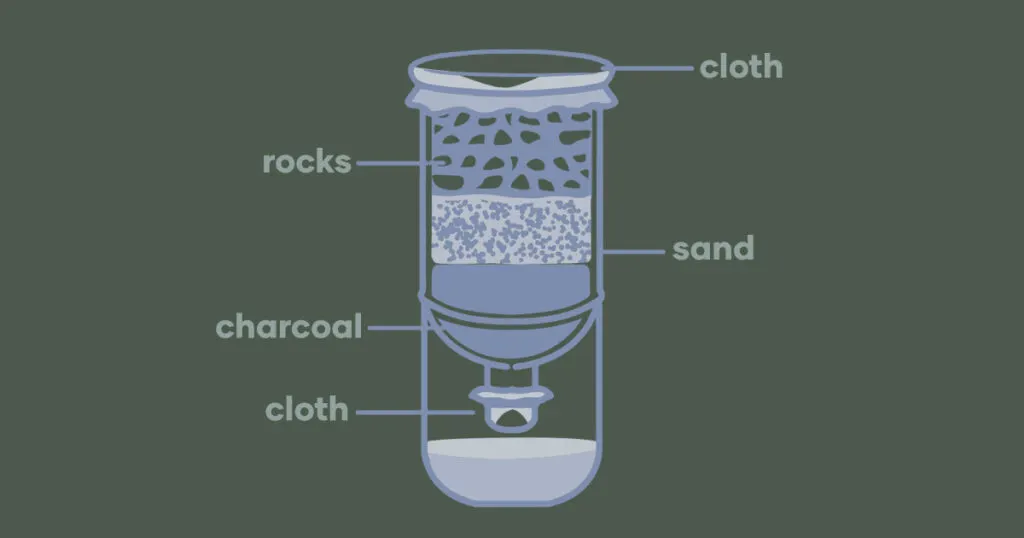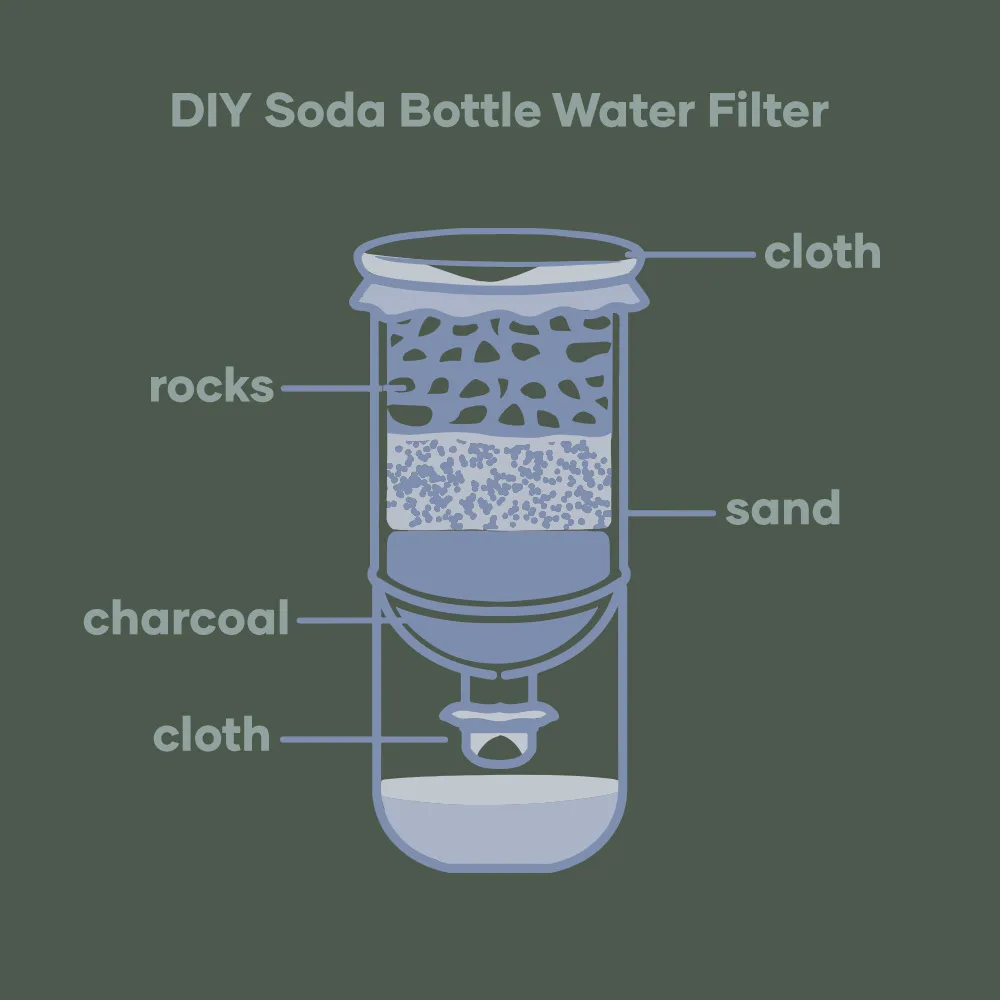Creating a reliable water filtration system is essential for emergency preparedness and off-grid living. In this guide, we’ll walk you through the process of constructing a basic water filter using a plastic bottle and readily available materials. This filter can help remove debris, particles, and some impurities from water, making it safer for consumption or other uses. However, it’s important to note that this filter does not remove all pathogens, so additional purification methods should be employed for drinking water.

Materials Required:
- Plastic bottle (1-2 liters)
- Scissors or knife
- Activated charcoal
- Fine-grain sand
- Small gravel
- Cloth or coffee filters (2 pieces)
Step 1: Preparing the Bottle
Start by cutting the bottom off a plastic bottle. The cut should be high enough to allow space for collecting filtered water in the base of the bottle. Once cut, flip the top portion upside down so the neck faces downward, fitting snugly into the bottom half of the bottle. The bottom section will serve as your collection container for the filtered water.
Step 2: Creating a Barrier
Place a piece of cloth or a coffee filter inside (or outside secured) at the neck of the bottle. This acts as a barrier to prevent the filtration materials from falling out and ensures that only filtered water passes through.
Step 3: Layering the Filtration Materials
- Bottom Layer – Activated Charcoal: Pour activated charcoal into the bottle to create a layer approximately 2-3 inches thick. This layer is important for adsorbing impurities and reducing odors in the water.
- Middle Layer – Sand: Add a 2-3 inch layer of fine-grain sand on top of the charcoal. The sand filters out smaller particles and sediments.
- Top Layer – Gravel: Place a 2-3 inch layer of small gravel on top of the sand. This layer captures larger debris and helps distribute the water evenly over the sand and charcoal layers.

Step 4: Securing the Filter
To keep the layers in place and prevent sediment from escaping, cover the top layer of gravel with another piece of cloth or a coffee filter. This final layer ensures that the filtration materials stay intact during use.
Step 5: Using the Filter
Pour water into the top of the filter, where the gravel is located. The water will pass through the gravel, sand, and charcoal layers, removing larger particles, fine sediments, and some impurities. The filtered water will collect in the bottom part of the bottle. Ensure that the collection container is clean before use.
Step 6: Maintenance
Regular maintenance is required to keep the filter functioning effectively. Replace the sand, charcoal, and gravel layers when they become clogged with debris or lose their filtration efficiency.
This DIY water filtration system offers a simple and effective way to filter water in emergency situations or off-grid environments. While it improves water quality by removing debris and some impurities, it is not a complete purification solution. Always consider boiling the water or using additional purification methods to ensure it is safe for drinking.
This technical approach to water filtration underscores the importance of being prepared for any situation where clean water may be scarce.
